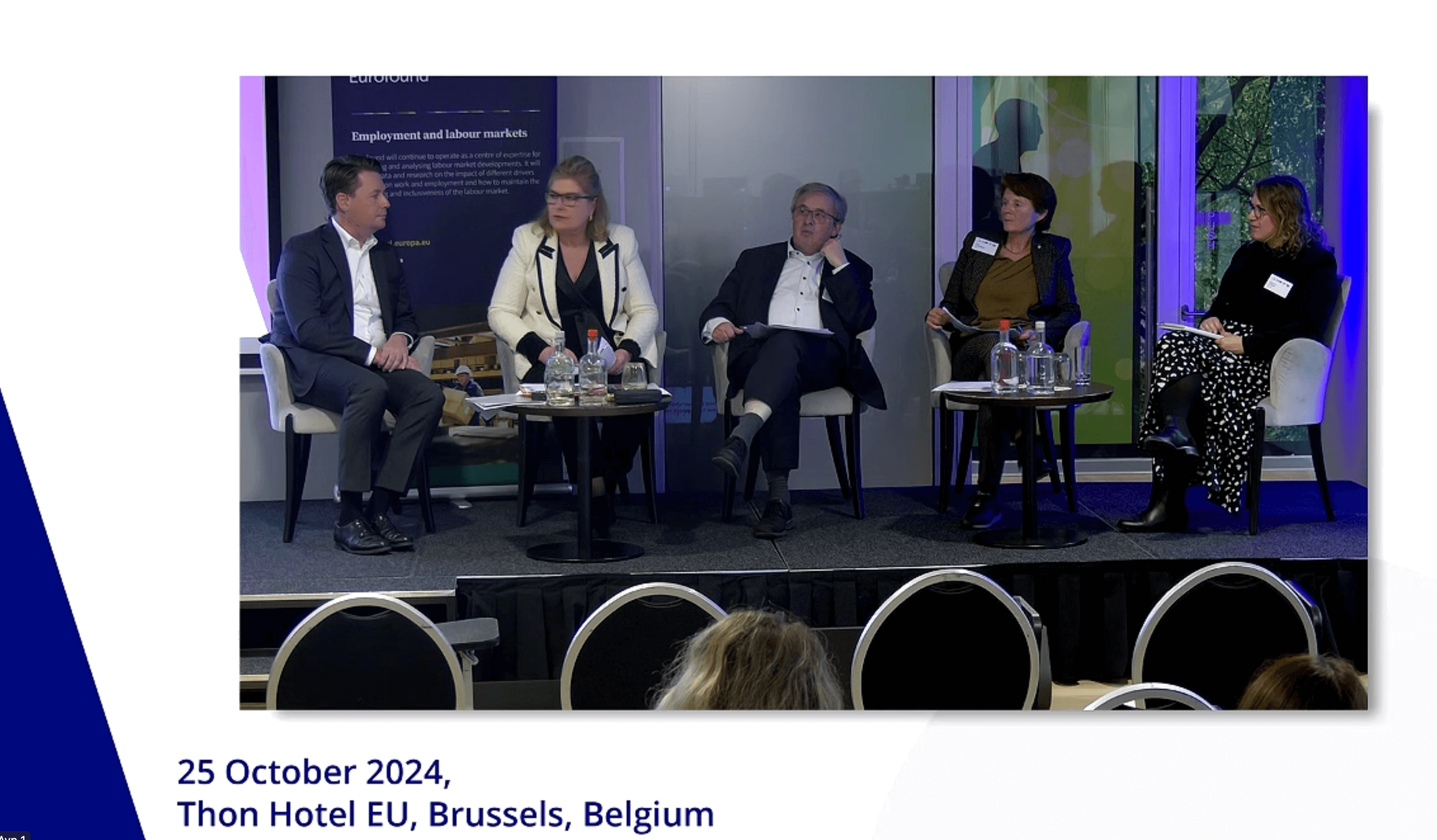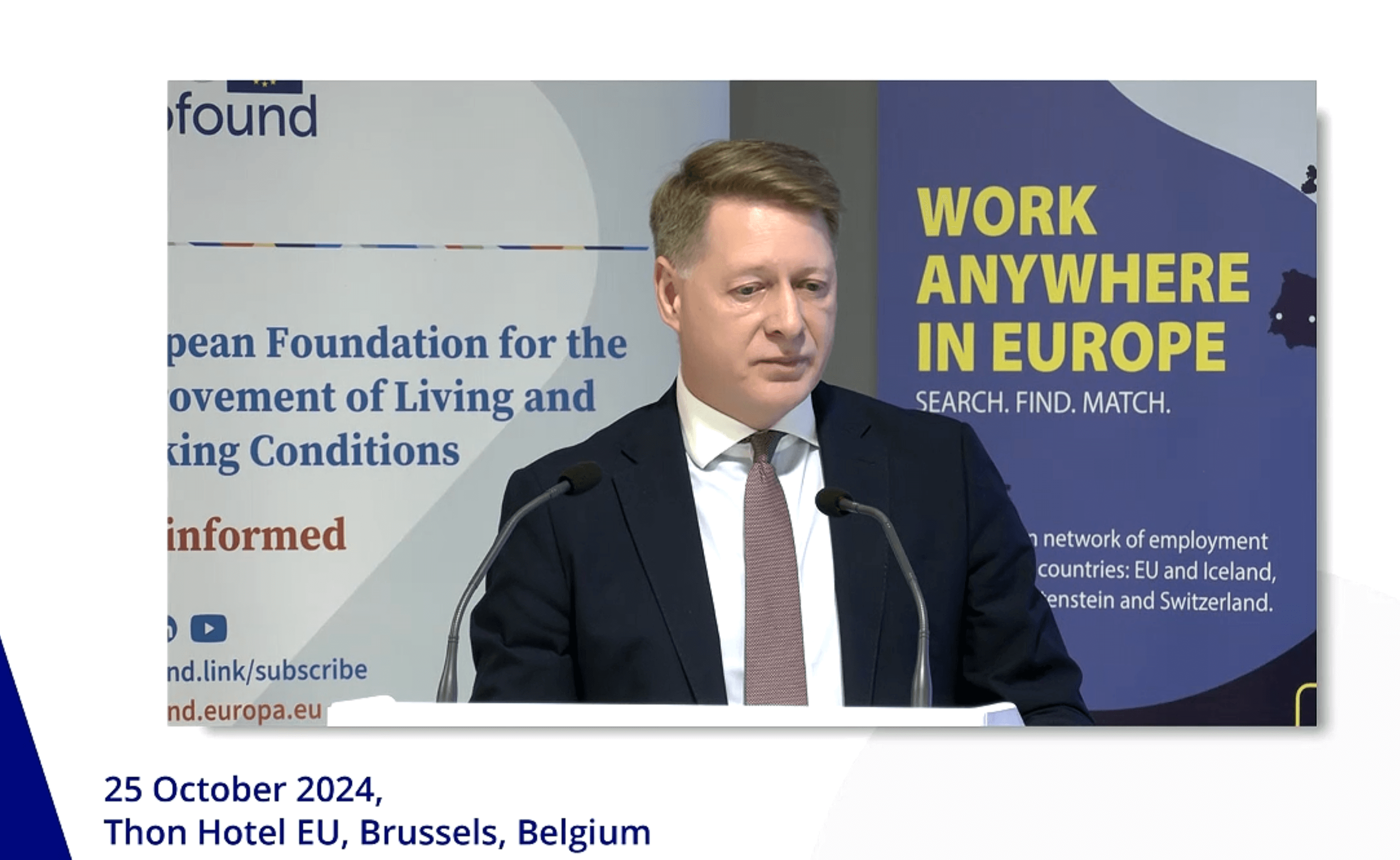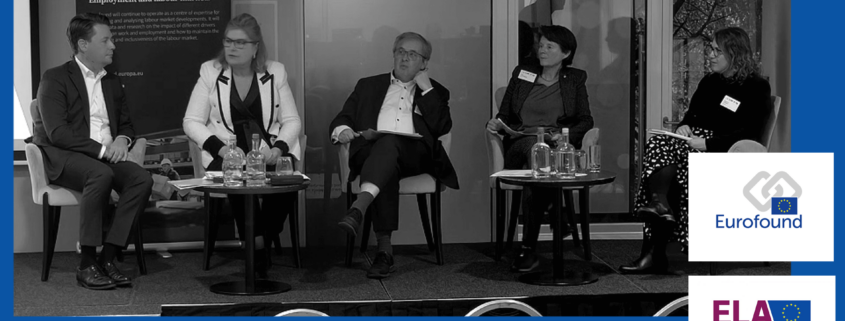“Learning by leaving” and other European solutions to the skilled workforce shortage
On 25 October 2024, Eurofound and the European Labour Authority (ELA) convened leaders from the public and private sectors at a hybrid event in Brussels titled “Struggling to recruit? Learn from effective practices” focusing on the complexities of recruiting skilled talent and strategies to mitigate the gap.
The event illuminated viable, innovative approaches to tackle this multifaceted problem.

80% of EU companies report significant difficulties in recruiting skilled workers, particularly in industries like automotive and retail
Trouble recruiting skilled workers
Labour shortages in Europe have steadily grown over the past decade due to factors such as rapid digitalization, green transition goals, and shifting demographics.
Today, nearly 80% of EU companies report significant difficulties in recruiting skilled workers, particularly in industries like automotive and retail.
Michael Freytag of the World Employment Confederation states, “The missing workforce is a main topic right now in the European labour market.” The inability to fill vacancies stymies growth, stresses current employees, and stalls progress toward the EU’s digital and environmental goals.
Managers are at the core of skill-shortage solutions
With skill shortages deeply affecting European enterprises, the spotlight falls on leaders and managers who are instrumental in implementing adaptable, long-term solutions.
Leaders recognize immediate recruitment issues and are called to shape policies and foster environments where talent can grow and stay.
The main strategies presented at Eurofound and ELA‘s event were upskilling existing staff and expanding access to training for underutilized worker groups and, in both solutions, managers are essential.
In that sense, Valentina Guerra of SME United highlighted the paramount role of EU social partners and collective bargaining.
Social partners contribute to policy development, ensuring small and medium-sized enterprises (SMEs) have the necessary support to train and retain skilled workers.
Valentina Guerra
SME United
Guerra noted that apprenticeships are pivotal in filling these gaps by equipping new workers with specialized skills, essential for seamless business transitions and continuity.
European mobility and training
Labour mobility within the EU has been identified as a potential answer to skill shortages. Despite efforts, however, only 3.5% of the EU workforce engages in cross-border employment, compared to approximately 7-8% in the United States.

Benedicte Paviot, Executive Director of ELA, emphasized the need to improve intra-European mobility, noting, “We must create the conditions to match skills with aspirations and motivations.”
Only 3.5% of the EU workforce engages in cross-border employment
Benedicte Paviot
Executive Director of the European Labour Authority
The EURES network’s services and EU-wide policies were presented as resources that can help facilitate fair and practical mobility. Still, challenges remain, including complex legal and tax considerations for mobile workers.
Inclusive Strategies to Address Workforce Gaps
Today’s discussions also highlighted a crucial, often overlooked, segment of the labour force: well-qualified, yet underrepresented groups such as women who are not active in the workforce, as well as migrants and third-country nationals.
Freytag underscored the importance of simplifying the legal framework around hiring third-country nationals. Companies struggle with a complex system that hinders the seamless integration of international talent.
The ongoing implementation of the Blue Card Directive is expected to address some of these issues, allowing easier recruitment of highly skilled non-EU nationals.
Additionally, ELA and Eurofound emphasized that addressing the skill gap requires a multi-pronged approach.
We should promote the idea of learning by leaving
Irma Vijverberg
EURES, EURopean Employment Services
Irma Vijverberg, Head of EURES NCO for the Netherlands, stated, “We should promote the idea of ‘learning by leaving’,” suggesting that experiences gained through EU mobility can be invaluable in fostering adaptable, highly skilled workers.

Leadership is needed to shape the future workforce
As the event concluded, Ivailo Kalfin, Executive Director of Eurofound, reiterated that addressing skill shortages necessitates coordinated action among social partners, business leaders, and policymakers.
The event made it clear that the path forward involves mobilizing leaders and managers to work closely with the workforce they aim to build, nurturing a labour market that aligns skill development with both economic needs and personal motivations.
As Europe grapples with skill shortages, the resolve of its leaders and managers will be critical to ensuring that companies can not only recruit the right talent but also foster an environment where employees are motivated to grow, innovate, and contribute to a sustainable future.




